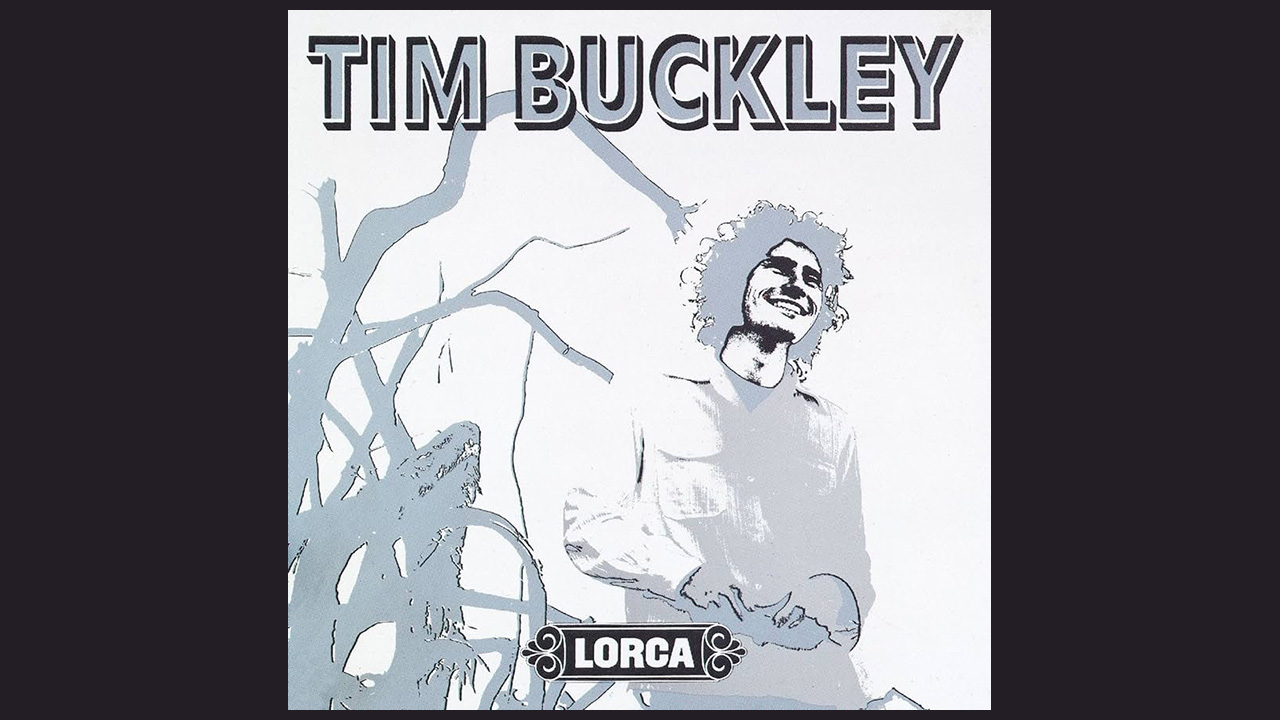
Beginning with an ominous, sustained chord from a gothic pipe organ, surrounded by flickering electric piano harmonics, it’s instantly obvious that Tim Buckley’s fourth LP is heading way off the map. “You’re just a man on death’s highways,” he solemnly intones on the title track; a startling, unsettling collision of his enthusiasm for free jazz, the out-there offerings of contemporary classical music’s avant-garde, and unflinchingly stream-of-consciousness, confessional folk song.
Otherworldly, intensely powerful and sometimes baffling, the five songs which make up Lorca show Buckley lost in uncanny rapture, slipping beyond the traditional reins which governed what a sensitive hippie troubadour was supposed to sound like at the tail end of the 60s.
Captured quickly in a fevered improvisation during September 1969, Buckley channels darkly intense psychodramas with keyboards, guitar and percussion. His astonishing voice, whose unbridled range could soar to ecstatic heights and swoop to furtive whispers, often within the same breath, flows in uneasy and confrontational waves.
Lorca and the creeping, liminal ballad Anonymous Proposition originally occupied side one of the album. The remaining three tracks were live recordings, though this wasn’t revealed at the time. Lighter in mood, they nonetheless reflect Buckley’s manic energies, from the pulsating undertow of Driftin’ to the euphoric runs of Nobody Walkin’ – clearly influenced by Miles Davis’ just-issued In A Silent Way.
Released in 1970, Lorca boldly pushes at the extremes of his talent. It’s also, perhaps, a resentful “fuck you” aimed at Elektra, who’d wanted something mainstream. With its pained yowls, dangerous curves, and the stream-of-consciousness valedictions, it took him in precisely the opposite direction. Though Elektra boss Jac Holzman respected Lorca’s defiant ambition, this was the product of an artist they no longer recognised. Unsurprisingly it was Buckley’s last for the label.
Often overlooked in favour of follow-up Starsailor’s spacey experimentalism, Lorca is that brave first leap into beyond. In 1995 his son Jeff Buckley wrote: “They certainly hit something that no one can touch,” before noting ominously, “When I die, you can all remember my admiration of that period.”
Sign up below to get the latest from Prog, plus exclusive special offers, direct to your inbox!
Sid's feature articles and reviews have appeared in numerous publications including Prog, Classic Rock, Record Collector, Q, Mojo and Uncut. A full-time freelance writer with hundreds of sleevenotes and essays for both indie and major record labels to his credit, his book, In The Court Of King Crimson, an acclaimed biography of King Crimson, was substantially revised and expanded in 2019 to coincide with the band’s 50th Anniversary. Alongside appearances on radio and TV, he has lectured on jazz and progressive music in the UK and Europe.
A resident of Whitley Bay in north-east England, he spends far too much time posting photographs of LPs he's listening to on Twitter and Facebook.

